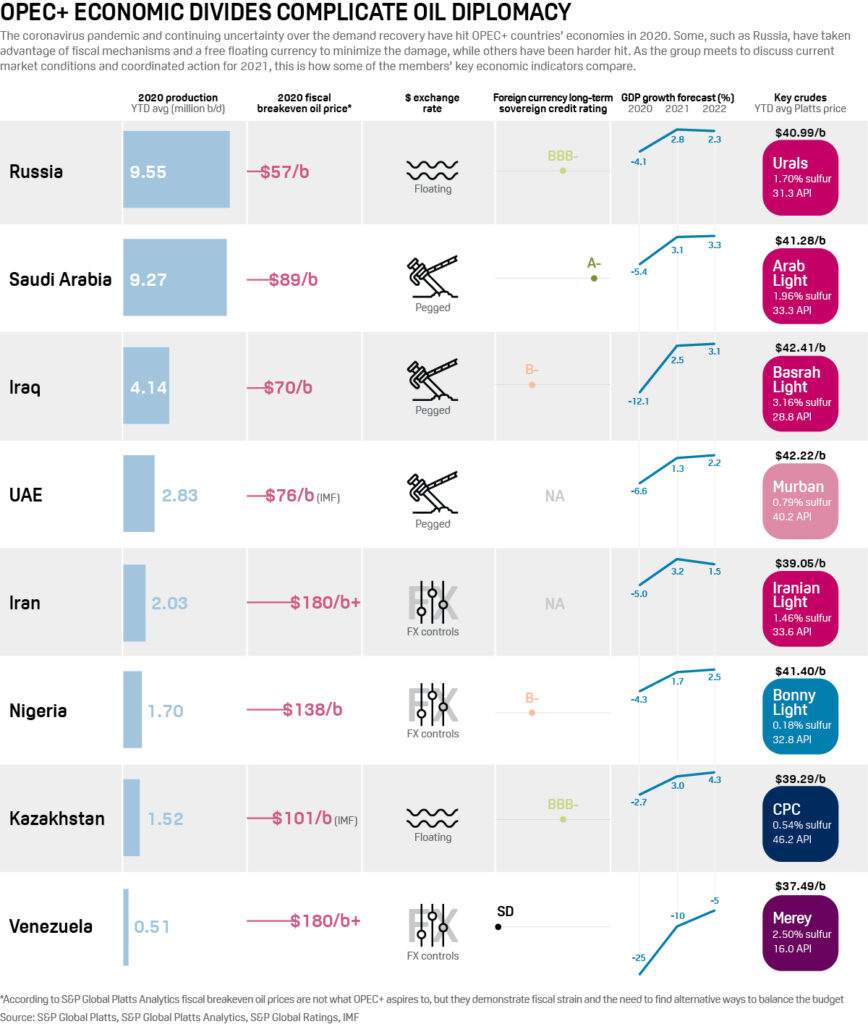The Organization of Petroleum Exporting countries, Russia, and allies known as OPEC+ have finally reached consensus about cuts in oil production. They agreed on extending current cuts to January 1, and then, modestly increase it by 500,000 barrels a day.
As we’ve informed, the agreement came with not little struggle, as the balance the Organization needed to reach was delicate. First, with deep economic inequalities from the countries within the OPEC itself.
Second, with high behaving prices as the vaccine news floods the market with optimism about a fast demand recovery. And last, caring about not oversupplying the balance as the market is still under pressure due to the pandemic.
The first meeting, on November 30, reached a consensus only at the first block of OPEC, which backed the decision of extending current cuts, by 7,7 million barrels a day, onto the first quarter of 2021; while Russia and other countries like Iraq, backed the decision of an escalated incremental, of about 1 or 2 million barrels, starting in January 1.
A second meeting, set for Tuesday was then delayed until Thursday, December 3. Today, the meeting started at 2pm, Vienna’s time, almost two hours behind schedule.
Recommended for you: OPEC+ working on oil production deal for 2021


Modest agreement by OPEC+
The decision settles at a modest middle point for the whole Organization; as we’ve said, OPEC+ will increase month by month the production by 500,000 barrels. They’ll hold monthly meetings to adjust the incremental if needed.
However, sources quoted by the NYT, consider that OPEC is at a turning point, as the United Arab Emirates, one’s the closest ally of the facto OPEC’s leader, Saudi Arabia, is considering going its own way in petroleum matters.
“They don’t want to be sidelined and just be a follower,” Amrita Sen, head of oil analysis at Energy Aspects, said to the NYT. Other analysts at S&P thought that a failure in the agreement could “jeopardize the future of the coalition and potentially lead to another bruising price war.”
Those fear are still floating around, as Prince Abdulaziz bin Salman, Saudi’s oil minister and chairman of the OPEC+ meetings, allegedly threatened to leave the chair of the committee, out of frustration of the difficulties from the meetings.
As to now, oil prices peaked to their highest point since the crash in April. Brent rose 1% to $48,71% and the West Texas Intermediate climbed 0,8% to $45,64 per barrel.

